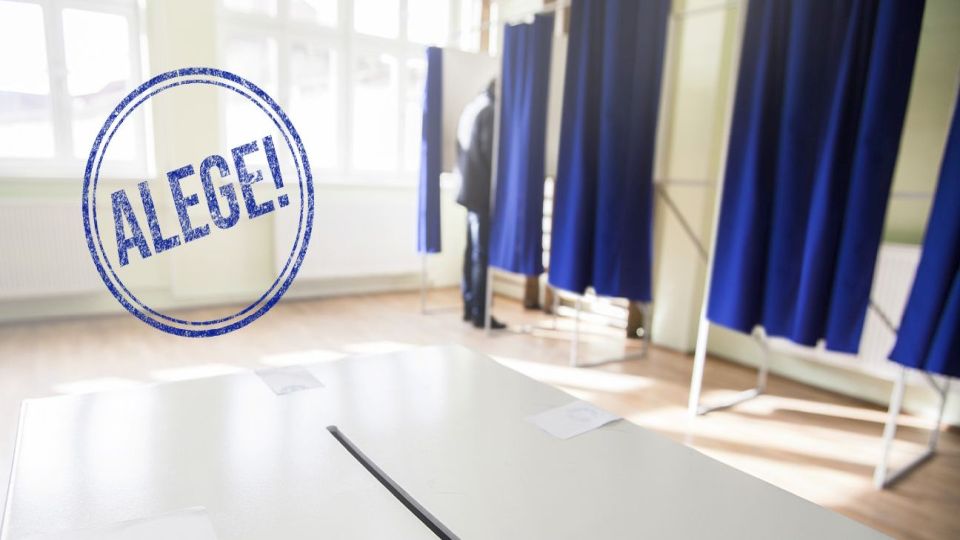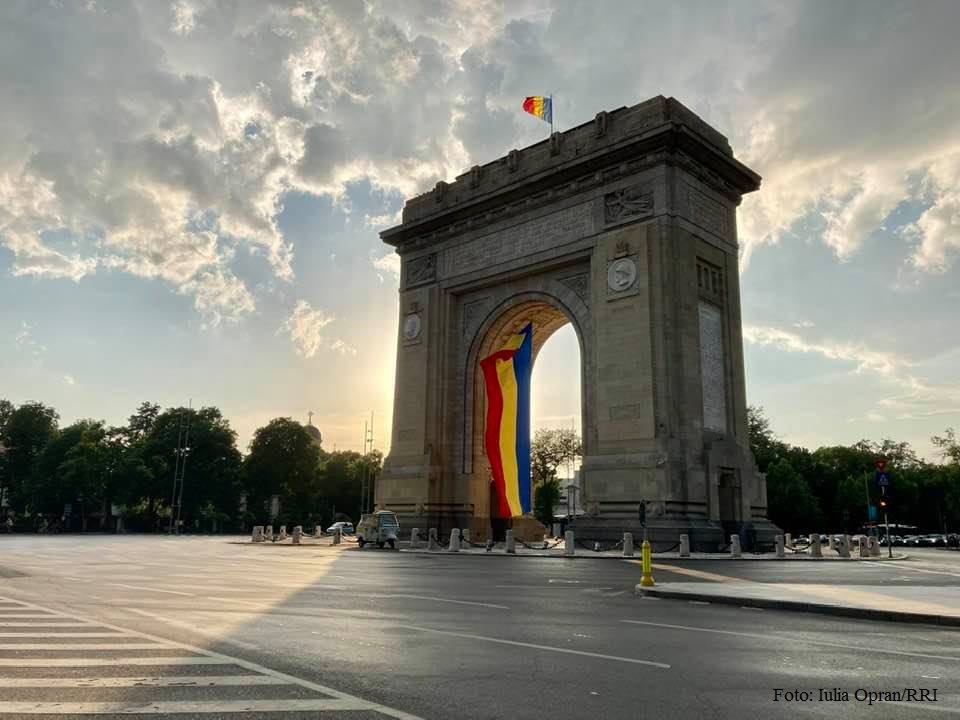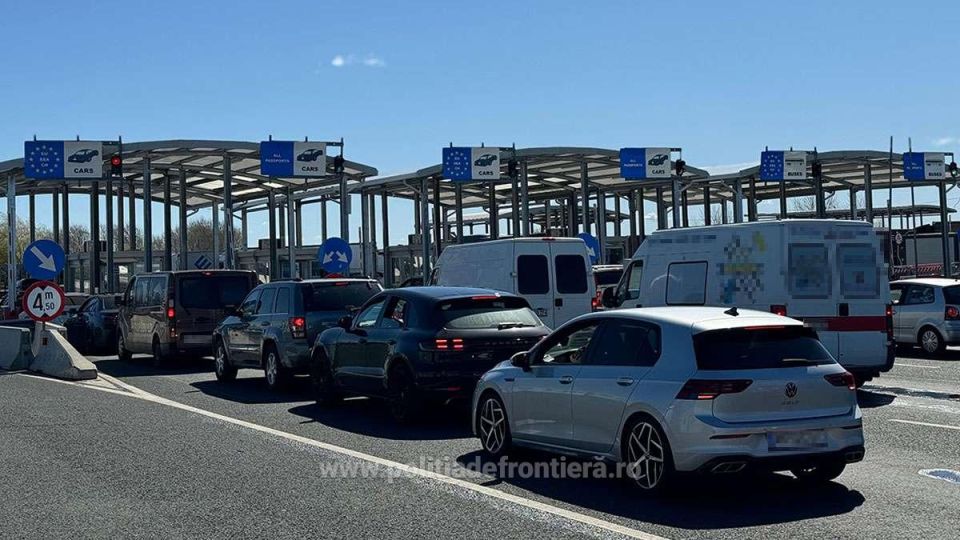Russia and the West
The easternmost border of the European Union and NATO, Romania has called on its western allies to enhance their military presence in the region. The “cold peace”, a term used by commentators to describe the situation between the West and Russia after the fall of communism, has recently turned into a psychological war following Russia’s annexation of Crimea.

România Internațional, 11.04.2014, 16:47
The easternmost border of the European Union and NATO, Romania has called on its western allies to enhance their military presence in the region. The “cold peace”, a term used by commentators to describe the situation between the West and Russia after the fall of communism, has recently turned into a psychological war following Russia’s annexation of Crimea.
Russian president Vladimir Putin has even hinted that he may use energy deliveries as a weapon, given that Europe is highly dependant of hydrocarbon imports from Russia. In a letter sent to the leaders of 18 European countries, including Romania, Vladimir Putin has called on Europeans to work out actions to stabilise the Ukrainian economy and ensure delivery and transit of Russian natural gas to the West. He warns that Moscow may halt deliveries unless the new authorities in Kiev resolve their unpaid bills. A common practice for quite a few years, the threat of cutting gas supplies has been sending shivers throughout many European Union states. According to prime minister Victor Ponta, Romania is not affected in the short term by a possible Russian gas crisis:
Victor Ponta: “Unlike other states, especially in this region, where many countries are entirely dependant on imports of Russian gas, Romania is in a better position, as only around 25% of its consumption is imported from Russia. Because we have had a mild winter, we now have the necessary resources to sustain us for a while. In the event of a short crisis, of weeks and even several months, gas deliveries for the population and the industry are in no danger. If the crisis drags on, this is all the more reason for Romania to invest more and develop its existing capacities to a maximum level, so that it could have its own internal production.”
A week ago, Moscow explicitly admonished Bucharest for what it saw as the hostile statements made by president Traian Basescu and the country’s foreign minister Titus Corlatean. The latter now says that as an eastern border of the European Union and NATO, Romania is in the front line and thus concerned about the developments in Ukraine, which have serious consequences in terms of international security. Minister Corlatean also said that Romania has clear expectations with regard to the sea, air and land redeployment and expansion of NATO’s military capabilities to the east. The Romanian state secretary Bogdan Aurescu conveyed a similar message in Washington during talks with the assistant US secretary of state for European affairs Victoria Nuland. He reiterated Romania’s call for an increased US and NATO military presence in the states that make up NATO’s eastern border.
The easternmost border of the European Union and NATO, Romania has called on its western allies to enhance their military presence in the region. To continue RN, xx has a commentary on these latest developments written by Bogdan Matei.
The “cold peace”, a term used by commentators to describe the situation between the West and Russia after the fall of communism, has recently turned into a psychological war following Russia’s annexation of Crimea. Russian president Vladimir Putin has even hinted that he may use energy deliveries as a weapon, given that Europe is highly dependant of hydrocarbon imports from Russia. In a letter sent to the leaders of 18 European countries, including Romania, Vladimir Putin has called on Europeans to work out actions to stabilise the Ukrainian economy and ensure delivery and transit of Russian natural gas to the West. He warns that Moscow may halt deliveries unless the new authorities in Kiev resolve their unpaid bills. A common practice for quite a few years, the threat of cutting gas supplies has been sending shivers throughout many European Union states. According to prime minister Victor Ponta, Romania is not affected in the short term by a possible Russian gas crisis:
Victor Ponta: “Unlike other states, especially in this region, where many countries are entirely dependant on imports of Russian gas, Romania is in a better position, as only around 25% of its consumption is imported from Russia. Because we have had a mild winter, we now have the necessary resources to sustain us for a while. In the event of a short crisis, of weeks and even several months, gas deliveries for the population and the industry are in no danger. If the crisis drags on, this is all the more reason for Romania to invest more and develop its existing capacities to a maximum level, so that it could have its own internal production.”
A week ago, Moscow explicitly admonished Bucharest for what it saw as the hostile statements made by president Traian Basescu and the country’s foreign minister Titus Corlatean. The latter now says that as an eastern border of the European Union and NATO, Romania is in the front line and thus concerned about the developments in Ukraine, which have serious consequences in terms of international security.
Minister Corlatean also said that Romania has clear expectations with regard to the sea, air and land redeployment and expansion of NATO’s military capabilities to the east. The Romanian state secretary Bogdan Aurescu conveyed a similar message in Washington during talks with the Unites States Assistant Secretary of State for European Affairs, Victoria Nuland. He reiterated Romania’s call for an increased US and NATO military presence in the states that make up NATO’s eastern border.






























